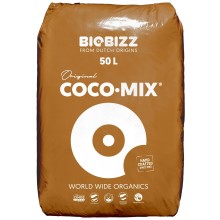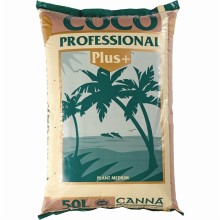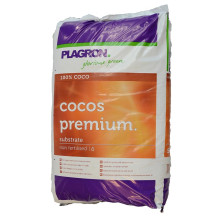- today
- label Plant cultivation
- favorite 10 likes
- remove_red_eye 5083 views
- comment 0 comments

Coconut Fiber as an Excellent Growing Medium for Plants
In today's world, where agriculture and horticulture face increasing challenges, we are discovering new and innovative methods to support plant growth. One promising solution is coconut fiber, commonly known as "coir." Derived from coconut husks, this natural fiber proves to be an excellent alternative to traditional soil, offering numerous benefits for both plants and the environment.
The Process of Obtaining Coconut Fiber
The process of obtaining coconut fiber begins with breaking and disassembling coconut shells. Subsequently, through specialized cleaning and drying processes, a lightweight, friable fiber is obtained, with a structure conducive to water retention and efficient air circulation. This entire process is not only effective but also environmentally friendly, making coconut fiber an ideal choice for eco-conscious gardeners.
Properties of Coconut Fiber
Coconut fiber possesses several properties that make it an outstanding growing medium for plants. Firstly, it has a neutral pH, allowing its use for various plant species without concerns about soil pH. Additionally, the structure of coconut fiber promotes excellent air circulation around plant roots, enhancing root respiration.
One key feature is its ability to maintain optimal moisture levels. Acting as a natural regulator, coconut fiber enables plants to access water even during dry periods, crucial for their healthy growth.
Advantages of Coconut Substrate Over Soil
Compared to traditional soil cultivation, coconut fiber exhibits several significant advantages. Firstly, it is pH-neutral, eliminating the need for pH corrections as required in some soils. Moreover, the lightweight structure of coconut fiber facilitates easier access to oxygen for plant roots, accelerating plant growth and development. Additionally, coconut substrate is free from weeds, fungi, and harmful bacteria, reducing the risk of plant diseases.
Three Premium Substrates for Plant Cultivation
In the realm of high-quality coconut substrates, three renowned brands stand out: BioBizz Coco-Mix, Plagron Cocos Premium, and Canna Coco Professional. These products belong to the category of Premium substrates, indicating that they are certified, purified, and meet the highest quality standards.
1. BioBizz Coco-Mix: This substrate combines the excellent properties of coconut fiber with organic ingredients, ensuring plants receive a full range of necessary nutrients.
2. Plagron Cocos Premium: Not only does it boast an excellent structure, but it also features a well-composed blend of nutrients, supporting the healthy growth of plants.
3. Canna Coco Professional: This substrate undergoes rigorous purification processes, eliminating any undesirable substances. It provides uniform delivery of nutrients, making it an ideal choice for professional gardeners.
Conclusion
Coconut fiber, also known as "coir," is not only ecological but also an effective growing medium for plants. Its water retention, air circulation, and neutral pH make it an excellent alternative to traditional soil. By choosing Premium substrates such as BioBizz Coco-Mix, Plagron Cocos Premium, or Canna Coco Professional, gardeners can be confident that they are offering their plants the highest quality and optimal conditions for growth and development. Introducing coconut fiber into horticulture is a step towards more sustainable, efficient, and environmentally friendly plant cultivation.




Comments (0)